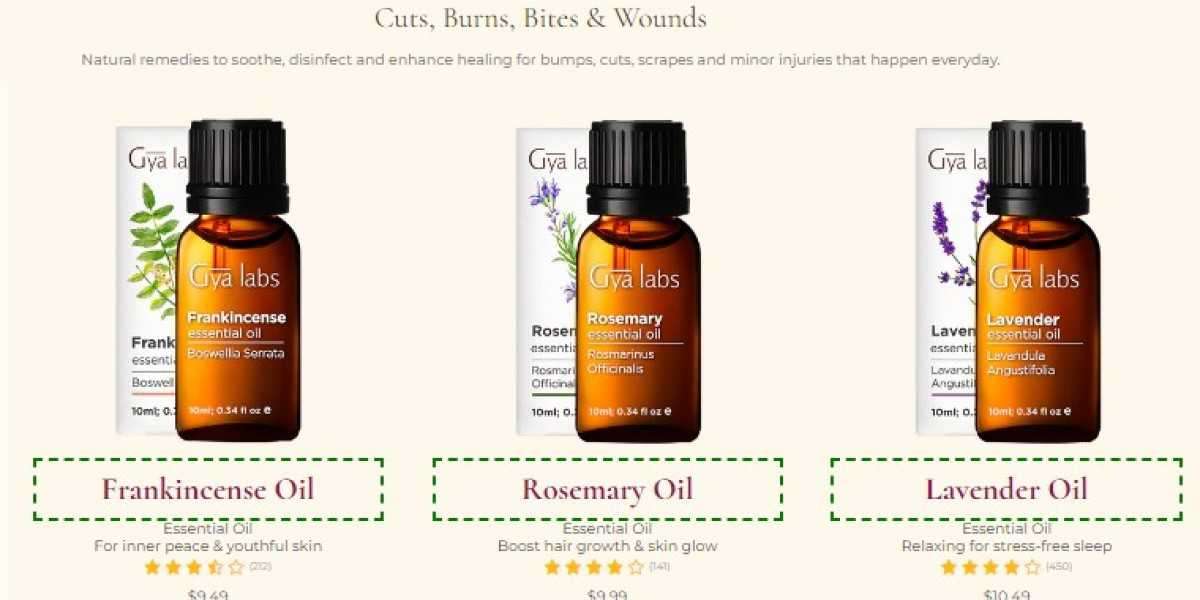Jojoba oil has become increasingly popular in recent years as a versatile carrier oil used in aromatherapy, skincare, and wound care. Derived from the seeds of the jojoba plant, jojoba oil contains nutrients that make it an effective moisturizer and skin healer. When used on wounds, jojoba oil can accelerate the healing process and prevent infections from developing. Here is an overview of how jojoba oil promotes wound healing and why it’s considered a top carrier oil for wound care.
Promotes Collagen Production
One of the standout qualities of jojoba oil is that it contains vitamin E, a powerful antioxidant. Vitamin E stimulates the production of collagen, which is the protein that gives structure and strength to skin. Collagen levels decline naturally with age, and wounds further degrade collagen at the site of injury. Applying jojoba oil replenishes collagen supplies because the vitamin E in the oil activates collagen production. This helps wounds heal faster and reduces scarring. The collagen-boosting effects also strengthen skin around wounds, which protects wounds from re-injury.
Reduces Inflammation
Wounds trigger an inflammatory response, which is the body’s way of rushing nutrients and white blood cells to the injury site. However, prolonged inflammation slows healing and causes swelling, tenderness, and redness. Jojoba oil is anti-inflammatory, meaning it reduces excessive inflammation. The antioxidant content neutralizes free radicals that drive inflammation at wound sites. This helps curb irritation, discomfort, and redness as the wound heals.
Forms a Protective Barrier
When applied to wounds, jojoba oil creates a waxy, antiseptic barrier. The molecular structure of jojoba oil enables the oil to closely mimic the skin’s natural sebum. This allows jojoba oil to rapidly penetrate skin and fuse with the lipid layer. Once absorbed, jojoba oil forms a waxy film over wounds. This barrier locks in moisture and protects the wound from environmental pollutants and bacteria. The wax also enables wounds to retain their moisture and nutrients for efficient healing.
Fights Infection
Infections develop when wounds are exposed to bacteria. Jojoba oil has natural antibacterial and antifungal properties that help fight wound infections. Studies show jojoba oil is effective against common bacterial wound infections like staphylococcus and streptococcus. The oil also combats Candida fungal species. Jojoba oil’s antioxidants prevent microbes from proliferating by damaging their cellular walls. When used topically on wounds, jojoba oil purifies the wound while forming a sterile shield. This protects the wound from becoming infected as it heals.
Supports Granulation
An important part of the healing process is granulation, which is the growth of new tissue in a wound. Granulation fills wounds with dense, pink tissue made of collagen and new blood vessels. Jojoba oil supports healthy granulation by stimulating collagen production. Vitamin E in jojoba oil also promotes proper blood vessel formation. Adequate granulation is crucial for closing and covering wounds. Jojoba oil provides the right nutrients and moisture environment to enable granulation tissue to grow and recover wounded skin.
Minimizes Scarring
Most wounds result in some degree of scarring, although the extent varies. Jojoba oil improves skin elasticity and suppleness as wounds heal. This makes scars smoother and less noticeable. Jojoba oil also keeps wounds hydrated. Research shows proper hydration is key to minimizing scarring. When wounds become too dry, collagen production stalls and scarring worsens. By keeping wounds moisturized, jojoba oil allows for the most minimal scarring possible.
Boosts Cell Regeneration
The wound healing process relies on new skin cell generation. Jojoba oil contains nutrients like vitamin E, vitamin B complex, silicon, chromium, copper, and zinc. These nutrients stimulate skin cell turnover and regeneration. The oil’s antioxidants also remove free radicals that can damage skin cells and delay their regeneration. This enables wounds to heal with fresh, newer tissue for optimal recovery.
Does Not Cause Allergic Reactions
An advantage of using jojoba oil on wounds is that it’s well-tolerated by most people. Jojoba oil contains no common allergenic compounds. Research shows jojoba oil does not irritate skin or trigger immune responses. Unlike many botanical oils, jojoba oil can be safely used on wounds without causing adverse skin reactions in most individuals. This makes it ideal for wound care, since allergies can further damage irritated skin around wounds.
Readily Absorbed By Skin
The skin readily absorbs jojoba oil, allowing its medicinal contents to penetrate rapidly. Jojoba is less viscous and thicker than other carrier oils. Its smaller molecular structure enables easy diffusion into the top layer of skin. When applied to wounds, jojoba oil is absorbed quickly to begin working immediately. Other carrier oils sit thicker on the skin surface. Jojoba oil’s rapid penetration enables fast wound closure.
Long Shelf Life
Jojoba oil resists oxidation and rancidification much better than most oils. Its chemical structure gives jojoba oil a long shelf life of two to three years. When kept sealed in a cool environment, jojoba oil maintains its potency and purity. Other carrier oils expire faster when their compounds degrade from heat and oxygen exposure. Jojoba oil’s durable composition allows it to be used later with consistent effectiveness. This perk makes jojoba oil a great oil to stock in a first aid kit for future wound care needs.
Versatile Carrier Oil
In addition to using jojoba oil directly on wounds, it can be combined with other healing ingredients. Jojoba works well as a carrier oil for essential oils that also fight infections, reduce inflammation, and promote skin health. For example, combining jojoba oil with anti-bacterial tea tree or lavender oil enhances jojoba oil’s therapeutic wound effects. You can also mix jojoba oil with aloe vera gel to make a soothing salve for wounds.
Affordable Carrier Oil
Many high-quality essential oils and carrier oils can be quite costly. Jojoba oil is unique in that it’s affordably priced for a multipurpose oil. Jojoba is relatively easy to cultivate, and a little goes a long way in healing applications. For wound care, only a few drops of jojoba oil are needed to promote healing. Compared to other carrier oils, jojoba oil offers excellent therapeutic value at a wallet-friendly price.
Easily Use at Home
It’s simple to use jojoba oil on wounds at home. Clean and disinfect wounds first to remove debris and bacteria. Pat the area dry, then use a clean fingertip or cotton swab to apply a layer of jojoba oil over the wound and surrounding skin. Reapply 2-3 times a day to keep the wound moisturized. Cover larger wounds with antibacterial gauze after applying jojoba oil. Combine jojoba oil with antibacterial essential oils when treating infected or high-risk wounds. Use jojoba oil on cuts, burns, bruises, blisters, cracked skin, and insect bites.
Minimizes Wound Scarring
Scarring is a natural part of the skin’s healing process, but jojoba oil can help minimize the appearance of scars from wounds. Jojoba oil supports granulation, the growth of new tissue, which fills in wounds with fresh collagen and blood vessels. This leads to smoother, less noticeable scarring. The oil’s nutrients also improve skin elasticity to reduce the tight, ropy texture scars can develop. Plus, jojoba oil helps wounds retain moisture, which is key to reducing scarring.
Good For All Skin Types
A major advantage of jojoba oil is that it can be used safely and effectively on all skin types. It does not clog pores or cause breakouts, which makes it ideal for oily and acne-prone skin. Jojoba oil is also non-comedogenic, meaning it does not block pores or hair follicles like coconut oil sometimes can. At the same time, jojoba oil contains essential fatty acids that replenish dry and aged skin. This means jojoba oil is moisturizing enough for dry, mature skin as well.
Long-Lasting Moisturizer
In addition to healing wounds faster, jojoba oil provides lasting hydration to skin. It’s absorbed quickly and can penetrate deep into the dermal layers. Jojoba oil contains ceramides that hold moisture in for hours. This prevents transepidermal water loss and the drying effects of external elements. Applying jojoba oil to healed wounds helps keep the area hydrated to avoid cracking, scabbing, and reopening. The moisture-retaining effects continue boosting skin health long after wounds close up.
Simple Topical Use
It’s easy to use jojoba oil on wounds since it can be applied directly. No need to dilute it in a carrier oil, which simpler wound care. Simply cleanse the wound, gently pat dry, and use a clean fingertip or cotton swab to smooth on a layer of jojoba oil. Let it absorb for 10-15 minutes before covering with a bandage. For infected wounds, mix in a couple drops of antibacterial tea tree or oregano essential oil. Jojoba oil can also be blended into homemade healing salves along with antibacterial herbs like calendula flowers.
Non-Comedogenic Carrier Oil
Unlike many plant-based oils, jojoba oil does not clog pores, which makes it “non-comedogenic.” Other oils like coconut oil are comedogenic, meaning they can block hair follicles and pores. Comedogenic agents make acne worse and can cause breakouts around wounds. Jojoba contains no comedogenic compounds, so it can be safely used on acne-prone skin without flare-ups. This makes it an ideal carrier oil for wound care, since it won’t further irritate or infect delicate wounded skin.
Promotes Healthy Skin Overall
In addition to healing wounds, jojoba oil contains nutrients that nurture skin health. It’s a great moisturizer for dry skin types and suitable for oily skin too. The antioxidants in jojoba oil fight free radicals that cause aging skin changes like wrinkles and dark spots. Jojoba oil also forms a protective emollient layer over skin without clogging pores. Using jojoba oil helps maintain healthy skin before and after wounds heal. This optimizes recovery outcomes for scar-free, evenly toned skin.
As a versatile carrier oil rich in healing properties, jojoba oil is highly effective for wound care. Its ability to stimulate collagen growth, fight infection, reduce inflammation, and hydrate skin makes jojoba oil an excellent topical agent to heal wounds faster. Jojoba oil is readily absorbed, affordable, and simple to use at home to speed up wound closure. With its anti-inflammatory, antimicrobial, and antioxidant content, jojoba oil is a wound healing powerhouse.








